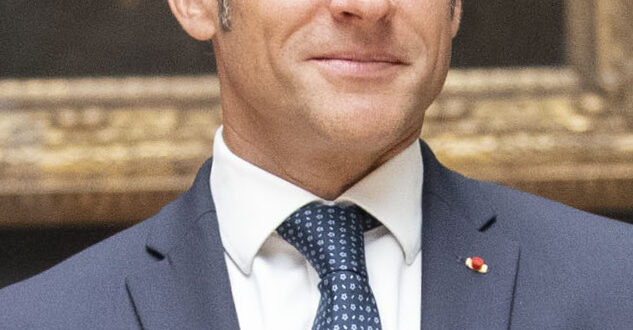Emmanuel Macron, France’s President since 2017, has become a significant figure in global politics. Known for his youthful energy, reformist agenda, and dynamic leadership style, Macron has shaped French and international policy in various ways. In this comprehensive guide, we’ll delve into Macron’s background, his rise to power, key policies, and his impact on global affairs.
Early Life and Career
1. Background and Education
Born on December 21, 1977, in Amiens, France, Emmanuel Macron grew up in a family of doctors. He attended the prestigious Lycée Henri-IV in Paris and later studied philosophy at the University of Paris-Ouest Nanterre La Défense. Macron’s academic journey continued at the École Nationale d’Administration (ENA), where he trained to become a high-ranking civil servant.
2. Early Professional Life
Before entering politics, Macron worked as an investment banker at Rothschild & Co. His success in finance, particularly his role in advising on major mergers and acquisitions, helped him build a reputation as a savvy economic strategist.
Rise to Political Prominence
1. Joining Politics
Emmanuel Macron’s political career began in earnest when he joined President François Hollande’s government as an economic advisor in 2012. He was appointed Minister of Economy, Industry, and Digital Affairs in 2014, where he pushed for economic reforms and liberalization policies.
2. Founding La République En Marche!
In April 2016, Macron launched his own political movement, La République En Marche! (LREM), positioning himself as a centrist alternative to traditional parties. His campaign focused on modernizing France’s economy, strengthening Europe, and promoting social equality.
Presidency of Emmanuel Macron
1. Electoral Victory and Key Achievements
Macron won the French presidential election in May 2017, defeating Marine Le Pen in a decisive runoff. His presidency has been marked by several key achievements:
- Economic Reforms: Macron implemented significant labor market reforms and changes to France’s pension system to boost economic growth and reduce unemployment.
- Environmental Initiatives: He has championed climate action, including the Paris Agreement, and promoted green energy and sustainability measures.
- Social Policies: Macron has focused on education reform, equal opportunity, and efforts to combat inequality.
2. Challenges and Controversies
Despite his successes, Macron has faced several challenges and controversies:
- Yellow Vest Protests: His economic policies sparked widespread protests known as the Yellow Vest movement, demanding more government action on social inequality and economic justice.
- COVID-19 Response: The pandemic presented significant challenges, with Macron’s handling of the crisis facing criticism regarding lockdown measures and vaccine distribution.
Macron’s Impact on Global Politics
1. Strengthening European Unity
Macron has been a strong advocate for European integration and cooperation. He has worked closely with German Chancellor Angela Merkel to address key EU issues, including economic stability, migration, and security.
2. International Relations
On the global stage, Macron has positioned France as a key player in addressing global challenges. He has engaged in diplomacy on issues such as climate change, security, and international trade, reinforcing France’s role as a significant global actor.
FAQ About Emmanuel Macron
Q: What are Emmanuel Macron’s main policies?
A: Emmanuel Macron’s main policies include economic reforms aimed at boosting growth, environmental initiatives focused on combating climate change, and social policies to promote equality and modernize France’s education system.
Q: How did Emmanuel Macron become President of France?
A: Macron became President of France in May 2017 after founding La République En Marche! and winning the presidential election against Marine Le Pen.
Q: What challenges has Macron faced during his presidency?
A: Macron has faced challenges such as the Yellow Vest protests, criticism over his handling of the COVID-19 pandemic, and opposition to some of his economic and social reforms.
Q: How has Macron influenced European politics?
A: Macron has influenced European politics by advocating for stronger European integration, working closely with EU leaders, and promoting policies on economic stability, migration, and security.
Q: What is the significance of Macron’s environmental policies?
A: Macron’s environmental policies are significant because they align with global climate goals, including the Paris Agreement. His focus on green energy and sustainability aims to address climate change and promote environmental responsibility.
Q: What is La République En Marche!?
A: La République En Marche! (LREM) is a centrist political movement founded by Emmanuel Macron in 2016. It aims to offer a modern and progressive alternative to traditional political parties in France.
Read more Recognizing Stomach Cancer Symptoms: Early Signs and What to Watch For – Bespokepost
Conclusion
Emmanuel Macron has emerged as a prominent and dynamic leader in French and global politics. His tenure as President of France has been characterized by significant reforms, ambitious policies, and a commitment to addressing both domestic and international challenges. As France continues to navigate its path under Macron’s leadership, his impact on the country and the world will undoubtedly shape the future of global politics.

